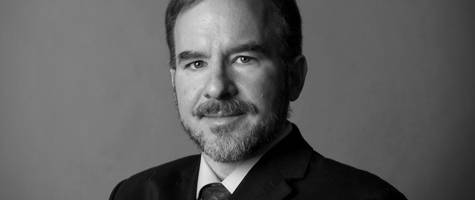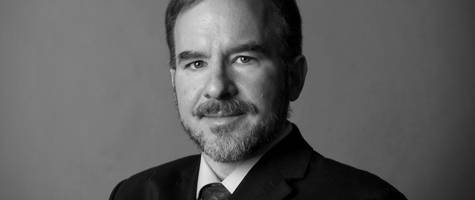
The city of Chicago has seen its fair share of everything. Trying to condense one of the most corrupt networks of government, into arguably the most culturally relevant city in North America, into a known middle child complex, would require research — lots of it. Since most of you are reading from Champaign-Urbana, I’ll let you use your imagination and current understanding of the city up north to fill in the blanks.
Needless to say, it’s alive up past I-80. And for thirty years, Neil Steinberg of the Chicago Sun-Times has been there to report on it, and then some.
I started reading him in 2001, when I was working for the News-Gazette as a morning delivery driver. Everything about him appealed to me. He’s Jewish (so am I), and lives in Northbrook (where my Grammy and Poppy lived), was a writer (I was trying my best as a columnist for Buzz), and was progressive enough for me to nod in agreement, and moderate enough to challenge my system of beliefs on the regular.
I pretty much fell in love with his column, and was compelled to reach out to him, and see if he’d respond.
He did. And we got together for lunch one day at Gene and Georgetti’s in the Loop one afternoon in 2005. Our one hour together was profound. And I will talk more about that on Saturday when I introduce him on Saturday at Exile on Main Street (in the old train station downtown Champaign) at 1:45 p.m.
Since then, we’ve only been in touch via social media and email. I still read his column, and his blog Every Goddamn Day almost daily; he’s one of my greatest inspirations.
On Saturday, you can hear him read from his new book, Out of the Wreck I Rise, which he calls a companion piece for the recovering addict. Normally, I’d never interview an author doing a book reading without having actually read their current book, but given the month for me, and my knowledge of his work thus far, I feel justified.
The topic is something close to me — to everyone, let’s be honest — and it’s a book that I have every intention of reading after I get through this year’s festival. Addiction is something I struggle with, too.
In advance of his appearance, I asked him a few questions about this and that, and was once again reminded why he is such a compelling figure.
Smile Politely: You told me this is really the first time you’ve visited Champaign-Urbana, save for a cursory trip to show one of your boys the campus while they were looking for places to attend.
What is your perception of this part of the state? This community, in general?
Neil Steinberg: Before seeing it, my impressions were vague; a rural nowhere with a state school stuck in the middle of it. Sort of like Ohio State University without the city of Columbus. It didn’t help that all the news out of Champaign seemed be either students being raped in the woods, or the latest professor who turned out to be a 1960s radical or similar whack job.
Once I saw the place, I was quite impressed with the school, and the city seemed livable and charming. More evidence that our lazy preconceptions are often far out-of-keeping with the actual reality. I was ready for my son to go to school there.
SP: Indeed, we get that a lot down here. And then people actually show up and are surprised at how cultured it is, despite the reports in the press.
You’ve been with the Sun-Times since 1987, so coming up on 30 years. Anything in particular that stands out about how downstate Illinois politics plays with Chicago’s politics? It’s an interesting dynamic.
Steinberg: Well, downstate politics is Michael Madigan, the great stone cipher of Illinois. What does he want? Why is he there? While there must be people who know that, I don’t. I suppose now there is also Gov. Bruce Rauner, who hates Chicago with a downstater’s passion, wants to be an Illinois Scott Walker, and failed completely.
SP: It’s definitely an interesting time here, politically.
You’ve now penned eight books, all about topics that really seize the reader and challenge convention. Your latest, Out of the Wreck I Rise, dives into a very important and personal topic:. addiction and recovery. The response and reviews have been phenomenal. It’s an unconventional narrative, in that it features a broad collection of historical quotes, advice, and commentary that is expanded upon through every chapter. Can you tell me a little more about how it came to be?
Steinberg: Like so many books, it was a complete accident.
I plucked a book off the free table at the newspaper, Strange Red Cow by Sara Bader. It was a look at history through the keyhole of classified advertising. I wrote a column in 2005 about how marvelous I thought it was, and we started talking over the phone. She was an editor at Princeton Architectural Press and, as a sideline, ran the Quotenik web site, sort of an on-line common book for quotations. I happened to be trudging through the 8-volume Loeb Classical Library of Seneca, and started dropping quotes onto Quotenik, so I could find them again when I needed them. Sara and I were talking on the phone—we have a similar outlook, and kept in touch— and she said, “I noticed you’re putting a lot of quotes about recovery onto Quotenik.” I said, “Yeah, I’m an alcoholic, I don’t drink, and I find these quotes powerful help in staying on the path to recovery.” I added that I always thought I could write a book using quotes as guideposts to help explain and facilitate recovery, but it would be such a lot of work that I wouldn’t do it alone.
“I’ll do it with you,” she said. So we formed an unlikely partnership, working on the book fro more than four years in Google Docs, without ever meeting.
SP: That is extraordinary. Did you ever end up meeting in person at all? Writing collaboratively is a challenge, of course — did you find that it helped being connected digitally, and not in real life?
Steinberg: Yes — she came in last Thursday for the Poetry Foundation book launch. We got on famously. She stayed with us, and at one point fell asleep on the sofa in our living room, which I took as an enormous compliment. You have to be very comfortable someplace to do that (or, I suppose, very tired).
I found we balanced each other. She brought quotes from areas I’d never have thought to check — Dag Hammarskjold’s diaries; Roger Rosenblatt’s essay on kayaking. She also counterbalanced my tendency toward grandiosity and over-writing.
I think being only connected digitally, and over the phone, kept our eyes on the task in front of us.
SP: I love that about the creative process, as well. Collaborating with people has a way of teaching us things we wouldn’t expect to find otherwise.
Recovering from addiction generally requires community — accountability partners — as it were. Did you find that Ms. Bader became part of that coalition for you? Or was it strictly professional — plug away, and shape this book into your shared vision, solely?
Steinberg: Sara wasn’t my community in a recovery sense. For that I relied pretty much on my wife, my friends and my shrink.
SP: Here in Champaign-Urbana, the struggle with addiction came home to roost in a big way when Urbana-native David Foster Wallace passed away in 2008. As a writer, one who writes persuasively for a living, do you feel as though you have some sort of obligation to help those in need, who are struggling with the same thing?
Steinberg: Perhaps not as a writer, but as a human being. Helping others is part of any successful recovery, though I don’t want to suggest it is done for selfish reasons. Any recovering addict knows how hard recovery is, and wants to help fellow sufferers, almost automatically. As for David Foster Wallace, we quote several powerful passages from Infinite Jest. I don’t know if he wrote those intending to help people, but they do, enormously.
SP: You are mainly doing promotional readings right now, but Pygmalion is a Literary Festival, comprised of fiction authors for the most part. What can people expect from your reading on Saturday (the 24th)?
Steinberg: Well, Out of the Wreck I Rise has the voices of many fiction writers, and quotes many works of fiction, from Brideshead Revisited to Dante’s Divine Comedy. I think I’ll read from the family chapter, since that is, in my estimation, the most powerful. It begins with a quote from William Faulkner’s daughter. It’s a remark, not fiction, but it sears in its own way.
SP: The Pygmalion Festival is sort of a multi-faceted festival that celebrates a bunch of different cultural arenas. Outside of writing, and reading, what are you into mainly? Food? Film? Travel?
Steinberg: I like music, and try to find new bands that are worth listening to. I don’t see many movies because most of them are crap. I do travel. I like to hike. In February, my wife and I spent a few days in Joshua Tree National Park, outside Los Angeles, and hiking in the Alleghenies in Pennsylvania. I went to Japan in March for a story and enjoyed taking the bullet train across the country — I could have flown, but I wanted to see the landscape rush by.
SP: Your blog is called Every Goddamn Day, which for me, as a regular reader is sort of the definition of hard work. You only have three columns for the Sun-Times each week, but you decided to go 365 days a year. Do you find that keeps writing more practical, to force yourself into it daily?
Steinberg: It sounds harder than it is. Three or four days a week I have something I’ve already done for the Sun-Times. I have years of photographs that can serve as a starting off point. Often something from the archives is still relevant, and can be reprinted. It is work, especially at moments like now, when it’s 6 p.m. and I haven’t thought about what I’ll write for tomorrow. But I’ll think of something. I always do.
SP: So, what comes next? Feels like you put a lot out on the table this time around with the new book and by all accounts, you and your wife are in an empty nest. Outside of an occasional trip to Romanian Kosher for garlicky hot dogs, and keeping up with the day job, anything we can expect from you in the future with certainty?
Steinberg: Another book. The University of Chicago Press wants me to write two books and we’re having breakfast next week to discuss which one comes first. My agent would like me to write a book for another commercial press, and I’m all for that. I’ve been writing long form science stories for Mosaic, the London web site, and want to get a new one going. They’re fun and allow me to stretch. I’d also like to get the basement in order.
Neil Steinberg reads at 1:45 p.m. on Saturday, September 24th, at Exile on Main St. as part of the Pygmalion Literary Festival. Publisher of Smile Politely, Seth Fein, will be introducing him, as well as Tom Kacich of the News-Gazette, who will lead a discussion with him afterwards about his book, and about the state of newspapers in the modern era.








